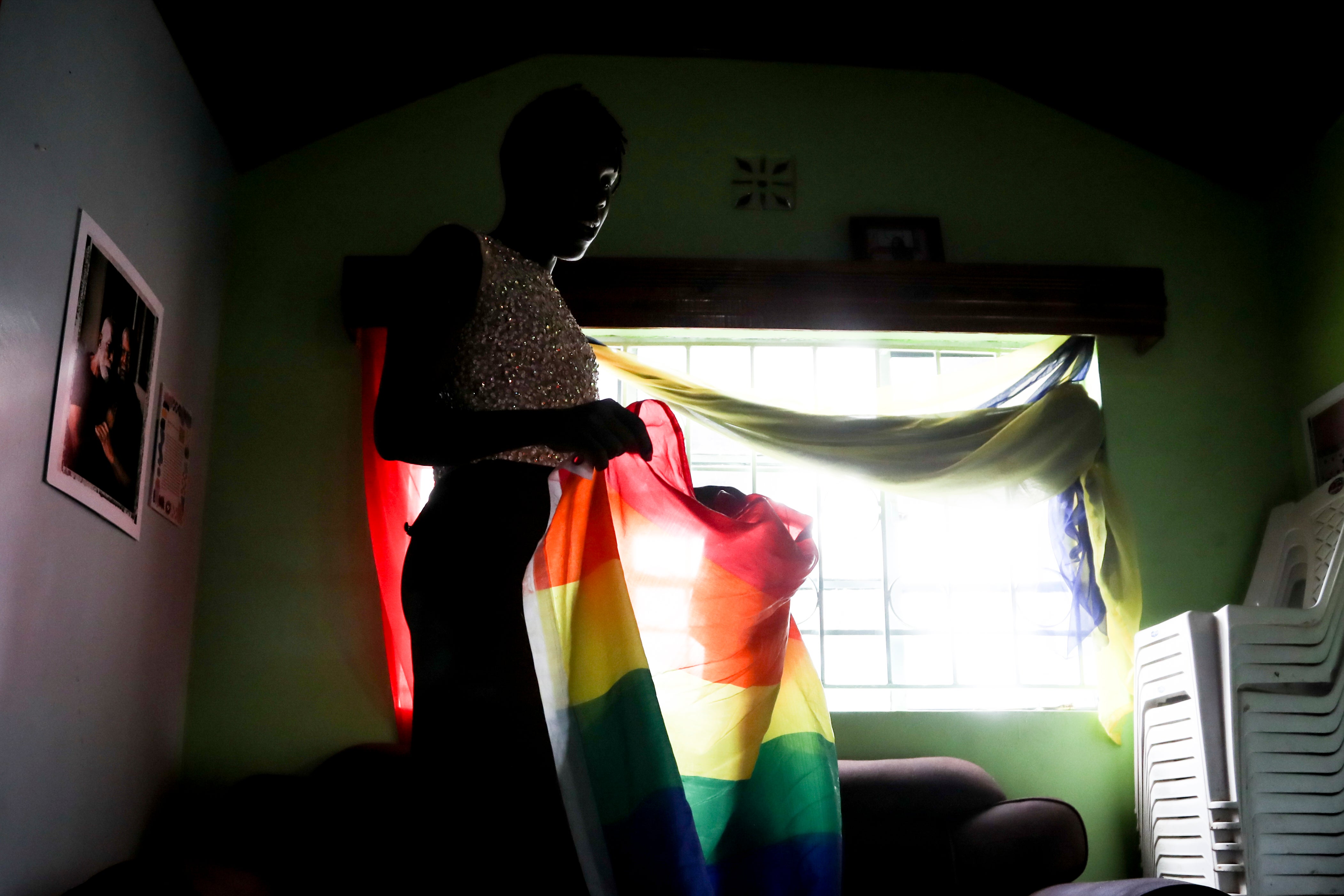Uganda’s anti-LGBT+ panic is a distraction from the country’s real issues
Stigmatising and terrorising individuals, contributing to the spread of HIV, and falling prey to the machinations of a wily dictator only harm society, writes Borzou Daragahi


Many human rights activists across the world are worried that the new Uganda law blatantly discriminating against Uganda’s LGBT+ community could lead to violence and repression of the east African country’s most vulnerable. But the truth is that pogroms against the country’s sexual minorities had already begun.
Even before the Anti-Homosexuality Act of 2023 was signed into law by the long-ruling President Yoweri Museveni on 29 May and made international headlines, the country’s LGBT+ community was living in fear.
The law imposes a potential life sentence or even a possible death penalty on those convicted of consensual sex acts. However, for nearly a decade, Uganda’s LGBT+ communities have faced rising numbers of arbitrary arrests, abuse at the hands of cops, workplace purges, loss of homes, and denial of healthcare, according to human rights researchers.
Police have conducted mass arrests at Pride events, raided bars and forced detainees to undergo humiliating and painful medical examinations, which, according to a report by Human Rights Watch, can in some instances constitute torture.
The new law is already potentially leading to the loss of lives. News accounts suggest that people are avoiding HIV clinics for testing and condom giveaways due to the fear of being targeted as members of the LGBT+ community. “The stigma and discrimination associated with the law have already resulted in reduced access to prevention and treatment services," a coalition of healthcare groups said in a statement.
World leaders have already made their strongly worded statements. “The enactment of Uganda’s anti-homosexuality act is a tragic violation of universal human rights, one that is not worthy of the Ugandan people – and one that jeopardises the prospects of critical economic growth for the entire country,” President Joe Biden said.
However, this crisis, which is entirely gratuitous, demands a greater response, and there are other avenues for action.
Uganda annually hosts scores of international professional conferences that are sponsored by global organisations. In addition to considering the cancellation of those lucrative conferences, attendees and organisers could use such forums to speak out against the new law and show a measure of solidarity for its victims.
Uganda also receives billions in international aid from western countries and through western-backed financing and development organisations – help that has gone a long way to reducing the country’s poverty levels over the last several decades. Although cutting off support may do more harm than good and create opportunities for Chinese or Russian interference, donors and aid organisations should ensure that aid is allocated without regard to the sexual orientation of recipients.
Western countries can also halt the exportation of the anti-LGBT+ ideologies from their own shores. Far-right Christian groups spend hundreds of millions of dollars promoting their twisted versions of family and morality in African countries. Such meddling in other nations’ affairs should be considered as unacceptable as Russian or Chinese interference in western elections.
Most importantly, Ugandans themselves should wake up to how they are being manipulated and take action.
The government’s aggressive targeting of vulnerable communities and individuals who are engaged in nothing more than consensual sexual acts and attempts to explore their own identities may seem utterly irrational. Uganda, a relatively impoverished and underdeveloped nation of 41 million, has bigger problems. Soaring inflation has wiped away modest income gains – a far more pertinent problem to the average Ugandan than how another citizen perceives or expresses themselves sexually.
But the distraction may be the point.
Museveno was once hailed as a member of the new generation of African leaders. But after more than 36 years in power, he has become a caricature of the corrupt African dictator that the onetime rebel leader once fought to overthrow.
The allegedly corrupt 78-year-old despot is devoid of fresh ideas and borrowing from the right-wing populist playbook employed by entrenched autocrats worldwide. Unwilling to step aside and unable to solve any of the country’s problems, he is rallying Ugandans by shrilly alleging that their traditional values and families are under attack by a global LGBT+ agenda. Under such a pretext, Uganda’s authorities have shut down the offices of LGBT+ organisations, including Sexual Minorities Uganda, which is one of the country’s most prominent.
The shutdown of such groups often serves as a warning sign, and indeed, Museveni has become increasingly autocratic in recent years, as indicated by human rights groups and scholars. Ahead of 2021 elections, his security henchmen had his opponent Bobi Wine arrested twice and beaten in custody. They shot dead scores of opposition supporters rallying in his defence. The government then blocked social media and telecommunications shortly before the vote. Museveni’s handpicked election officials said he was re-elected with 58 per cent of the vote. But the opposition alleged blatant fraud and ballot stuffing.
Uganda, like many African societies, has deeply ingrained cultural and traditional beliefs regarding gender and sexuality. Ugandans may perceive homosexuality as contrary to their traditional values and social norms, and outsiders must respect such viewpoints even if they sharply disagree.
However, stigmatising and terrorising individuals who may be their own relatives and loved ones, contributing to the spread of HIV, and falling prey to the machinations of a wily dictator, only harm society. Fear, death and dictatorship are not family values.






Join our commenting forum
Join thought-provoking conversations, follow other Independent readers and see their replies
Comments